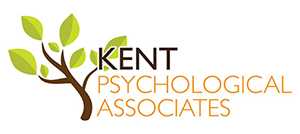Marriage and Couples Therapy is an important and necessary service provided by many counselors. Treatment helps couples manage difficult life transitions and issues that impact their relationship. Couples who seek therapy may struggle with communication, parenting, infidelity, and trust issues. Furthermore, many couples seek therapy as a result of feeling disconnected or lacking shared meaning.
The goal of marriage therapy is to help identify dysfunctional patterns that are not serving the relationship. Marriage therapists help strengthen relationships. A clinician's focus is to create an environment for couples to thrive . This is possible through the use of evidence-based skills and interventions.
Couples Therapy is beneficial to varying severity of relationship issues. Those who seek therapy may have significant marital issues or simply want to increase connection. In fact, research shows that couples wait an average of 6 years to seek therapy. Those that use marriage therapy as a preventative and maintenance measure often are those that fair the best. Much like a yearly physical, dental cleaning, or changing the oil in your car every 3,000 miles, marriage therapy works best when treated in this way.
What do I Look for in a Skilled Marriage Therapist?
Many mental health professionals overlap in their training. But it is important to discuss "scope of practice" to understand who is the best fit to manage particular issues. Although many trained clinicians can treat lots of the same issues, some have additional training in an area of expertise. Think of it this way… you can certainly go to your primary care physician to treat gynecological issues. However, an OBGYN may be someone able to better manage these issues. They have extensive training in women’s health and are more familiar with the diagnosis and treatment of gynecological issues.
The first thing you want to do in seeking a skilled marriage therapist is to find a licensed clinician in the state you reside. There are many different licensed professionals who are competent to treat mental health diagnoses and other issues including relationship struggles. However, it is important to understand which clinicians have additional training in this area. Marriage and Family Therapists (MFT, LMFT, IMFT) school clinical focus is on the treatment of couples and families. These clinicians are educated in learning theories, approaches, interventions, and treatment planning specific to this population. Therefore, how these therapists conceptualize cases is often different from other clinical approaches.
Does this mean that a clinician who does not have the license credentials "MFT, LMFT, IMFT" would not be a good marriage therapist?
NO. What this does mean is that a clinician who is a licensed clinical counselor, social worker, or psychologist should have some training in systems theory and additional training specific to treating couples at a minimum. If you are uncertain of a clinician’s training based on their bio, contact them to ask for a consultation. During your consultation you can ask questions to determine their area of expertise and if they are a good fit for your situation.
Some Questions to Consider
Below is a list of questions to consider when seeking a marriage therapist. If you are looking for a someone who also has more expertise in a particular area of relational issues, be sure to inquire about this during your consultation. Examples may include finding a marriage therapist who has experience with infidelity, trauma, substance use, etc.
- How long have you been treating couples?
- What percentage of your caseload is dedicated to couples?
- Do you have any specific training or certifications in treating couples?
- What is the biggest barrier to change for a couple? How do you address this in therapy?
- Why would working with you as a couple’s clinician be a good choice for us?
- Are there any other specialty areas that enhance your ability to treat couples?
- What is your assessment process for couples?
- How do you treat the relationship without having a bias?
- What is the goal of marital/couples therapy?
- How long are sessions?
-What is the standard length of treatment?
Myth to Couples Therapy Debunked
Many couples come into therapy ready to discuss the latest argument. Although tempting, this is the last place a couple often needs to start. A thorough assessment of the relationship is necessary to identify where to start the therapy. Reprocessing fights and arguments at the start of couples therapy is not beneficial. If a couple is unable to do so without getting back into the argument, this approach may only cause more harm. Unfortunately, this is usually the case when couples first start therapy. Furthermore, a couple first needs to learn skills that help to disengage their negative perspective. This is the first step in helping a couple to better understand one another. This takes time and a lot of practice. Different personalities, experiences, fears, and insecurities are common barriers to couples understanding one another.
There is a certain skill set necessary when working with couples. The “relationship” is the “client." Thus, the interaction and process between the couple takes priority, not the content. The couple dynamic necessitates a different approach than treating an individual so making an informed choice in clinician is crucial. Remember, you are fighting the issue in couples therapy, not each other.
If you have interest in consulting with one of our marriage counselors, fill out our form. Our Couples Program Coordinator will contact you. Additionally, you will receive our Bids for Connection Guide to help you get started in building skills to strengthen your relationship.

